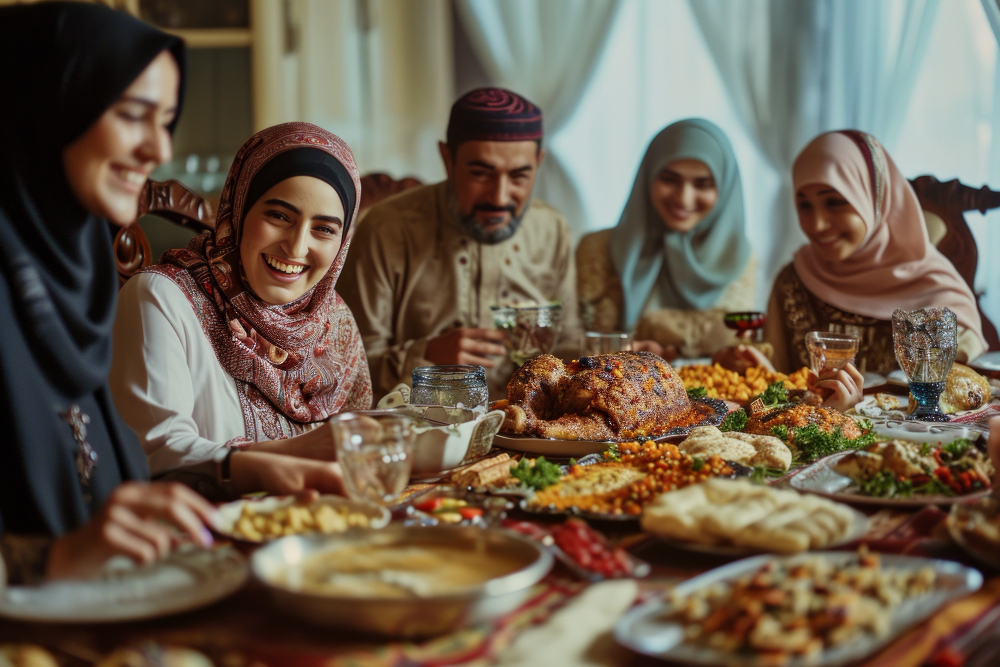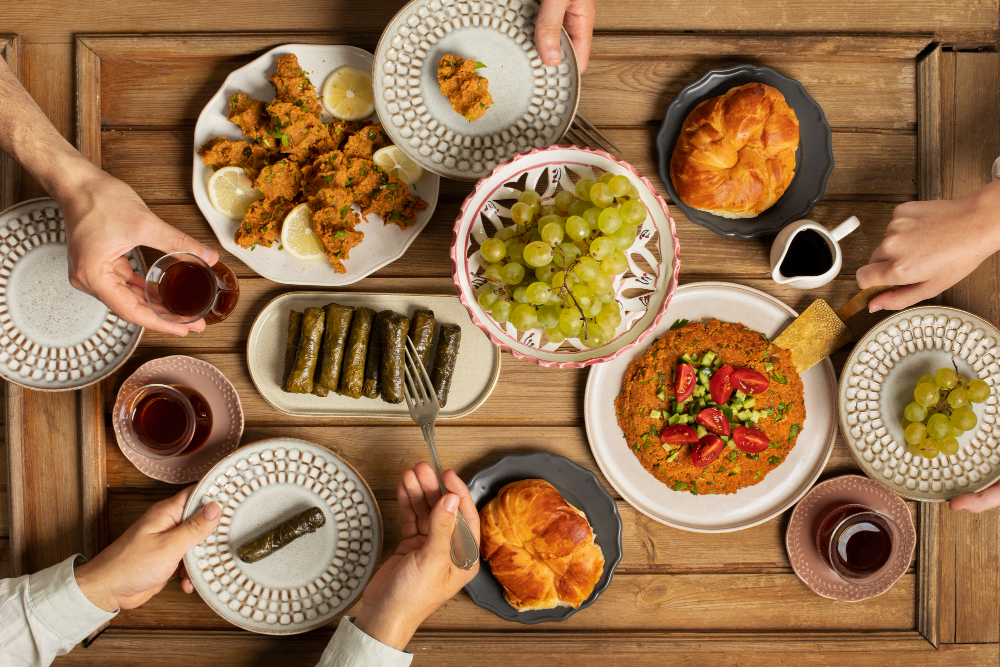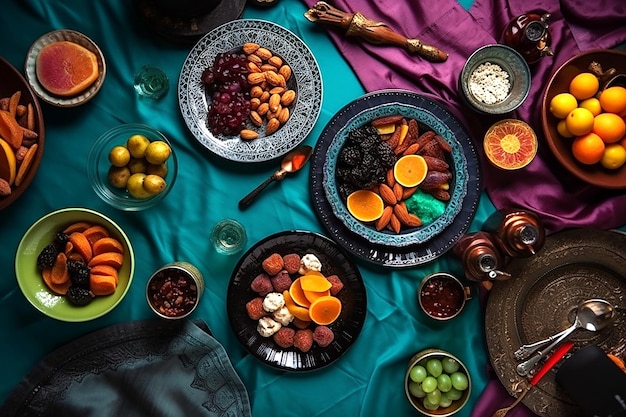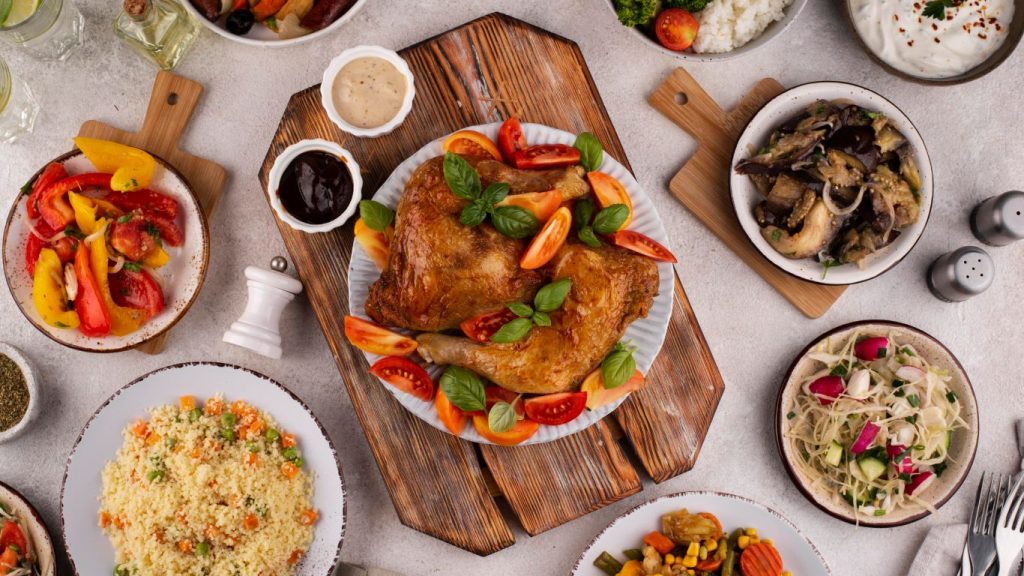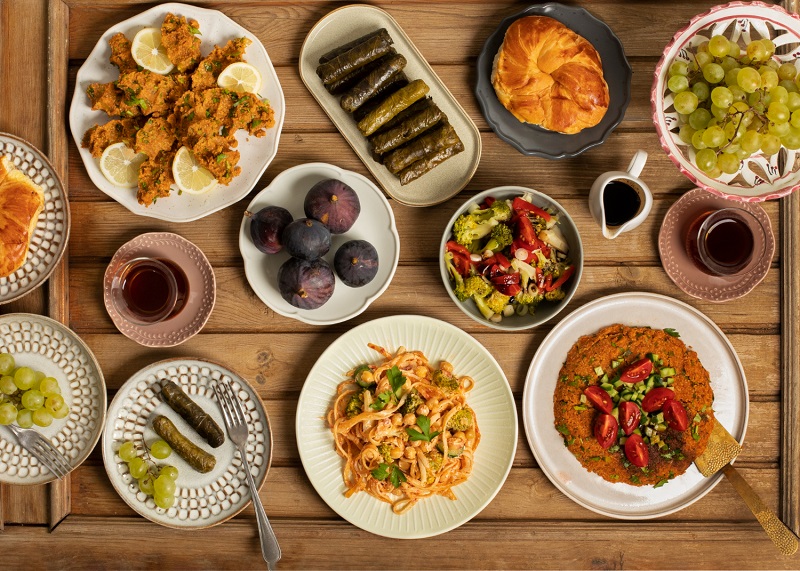The Health Benefits of Ramadan Fasting: Top 10 Reasons Why It’s Good for You
During Ramadan, Muslims fast from sunrise to sunset. This means they don’t eat or drink anything during the daylight hours. It might seem hard, but there are actually many benefits to fasting during Ramadan! One big benefit is that fasting can help people feel more connected to their faith and to other Muslims around the world. It’s a time for spiritual reflection and growth. Fasting can also be good for your body. It gives your digestive system a break and can help you develop healthier eating habits. Plus, some studies suggest that fasting can improve your overall health. But fasting isn’t just good for your body—it’s good for your mind too! It can help you develop self-discipline and empathy for those who are less fortunate. So, while fasting during Ramadan might be challenging, it’s also a time of great reward and benefit. It’s a time to focus on what’s truly important and to strengthen your body, mind, and spirit. Top 10 Health Benefits of Ramadan Fasting Ramadan is the ninth month of the Islamic lunar calendar, observed by Muslims worldwide as a month of fasting, prayer, reflection, and community. Fasting during Ramadan is one of the Five Pillars of Islam and is compulsory for all adult Muslims, with some exceptions. While fasting, Muslims abstain from eating or drinking from dawn (Fajr) until sunset (Maghrib). This fasting period, which lasts for around 29-30 days, has numerous health benefits, both physical and spiritual. 1. Weight Loss Fasting during Ramadan can be an effective way to lose weight. The fasting period allows the body to burn stored fat for energy, leading to weight loss. Additionally, fasting helps regulate hormones related to hunger and metabolism, which can further aid in weight loss. Studies have shown that fasting during Ramadan can lead to significant weight loss, especially in terms of body fat percentage. This weight loss is often maintained even after Ramadan, as fasting can help establish healthier eating patterns. 2. Blood Sugar Control Fasting during Ramadan can help improve blood sugar control, particularly in individuals with diabetes. The fasting period can lead to a reduction in insulin resistance, allowing for better glucose uptake by cells. Research has shown that fasting during Ramadan can lead to improvements in fasting blood glucose levels, HbA1c levels, and insulin sensitivity in individuals with type 2 diabetes. However, it is essential for individuals with diabetes to consult with their healthcare provider before fasting to ensure it is safe for them. 3. Boosted Immune System Fasting during Ramadan can help boost the immune system. The fasting period allows the body to conserve energy typically used for digestion and redirect it to other processes, such as immune function. Studies have shown that fasting can lead to an increase in the production of immune cells, such as T cells and B cells, which play a crucial role in fighting off infections. Additionally, fasting can reduce inflammation in the body, which is linked to a variety of health conditions. 4. Improved Sleep Fasting during Ramadan can lead to improved sleep patterns. The fasting period can help regulate the body’s internal clock, known as the circadian rhythm, which can improve the quality of sleep. Tips for better sleep during Ramadan include maintaining a regular sleep schedule, avoiding heavy meals before bedtime, and ensuring a comfortable sleep environment. 5. Reduces Blood Pressure Fasting during Ramadan can help reduce blood pressure levels. The fasting period allows the body to rest and repair, which can lead to a reduction in stress levels and, consequently, lower blood pressure. Research has shown that fasting during Ramadan can lead to a significant decrease in blood pressure levels, particularly in individuals with hypertension. However, individuals with hypertension should consult with their healthcare provider before fasting to ensure it is safe for them. 6. Regulates ‘Bad’ Cholesterol Fasting during Ramadan can help regulate ‘bad’ cholesterol levels, also known as LDL cholesterol. The fasting period can lead to a decrease in LDL cholesterol levels, which can reduce the risk of heart disease. Scientific evidence supports the benefits of Ramadan fasting for cholesterol levels. Studies have shown that fasting can lead to a decrease in LDL cholesterol levels and an increase in ‘good’ cholesterol levels, known as HDL cholesterol. 7. A Month-long Detox Fasting during Ramadan can act as a month-long detox for the body. The fasting period allows the body to eliminate toxins and waste products, leading to a cleaner, healthier system. Benefits of a detoxified system include improved digestion, clearer skin, and increased energy levels. Fasting can also help reset the body’s natural balance and improve overall well-being. 8. Improved Metabolism Fasting during Ramadan can lead to improved metabolism. The fasting period can help regulate hormones related to metabolism, such as insulin and ghrelin, which can lead to better metabolic function. Studies have shown that fasting can lead to changes in metabolic rate and energy expenditure, which can aid in weight loss and weight management. Additionally, fasting can help improve insulin sensitivity, which is beneficial for individuals with diabetes. 9. Improved Heart Health Fasting during Ramadan can lead to improved heart health. The fasting period can help reduce the risk factors associated with heart disease, such as high blood pressure, high cholesterol, and obesity. Research on the cardiovascular benefits of Ramadan fasting has shown that fasting can lead to improvements in heart rate, blood pressure, and cholesterol levels. Additionally, fasting can help reduce inflammation in the body, which is a risk factor for heart disease. 10. Better Digestive Health Fasting during Ramadan can lead to better digestive health. The fasting period allows the digestive system to rest and repair, which can improve digestion and nutrient absorption. Tips for maintaining good digestive health during Ramadan include eating a balanced diet, staying hydrated, and avoiding overeating during non-fasting hours. Additionally, including fiber-rich foods in the diet can help promote healthy digestion. Conclusion Fasting during Ramadan has numerous health benefits, including weight loss, improved blood sugar control, boosted immune system, improved sleep, reduced blood
The Health Benefits of Ramadan Fasting: Top 10 Reasons Why It’s Good for You Read More »

